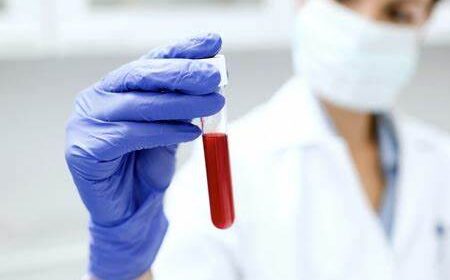Bladder Cancer Detection Kit Market: Increasing prevalence of bladder cancer and demand for detection kitsis augmenting the market growth at a healthy CAGR of ~11.17% during the forecast period of 2021 to 2027
Market Highlights
According to CRI analysis, the global bladder cancer detection kit market is expected to register a CAGR of ~11.17% from 2021 to 2027and hold a value of USD ~322.4 million by 2027.
The global bladder cancer detection kit market is driven by several factors, such as the increasing prevalence of bladder cancer worldwide, surge in mortality rate due to bladder cancer, rising demand for non-invasive detection of urothelial cancer, and growing aging population. Moreover, the market players are developing products and raising funds for marketing its product all across the world. The industry players are focusing on the expansion of their distribution network and supply chain to dominate the global bladder cancer detection kit market.
The key players are involved in new product launches, strategic agreements, funding, investments, and joint ventures to augment their market positions. For instance, in March 2021,OncoDiag (France) raised USD 3.0 million to commercialize its Urodiag PCR-based diagnostic test for recurrent bladder cancer in order to expand its international presence in Europe, the US, Canada, and Japan.Further, the HirotsuBioScience (Japan)claimed that the clinical trials of their new early detection kit found the test effective in 85% of cases using just a single drop of urine. In addition, the doctors in Japan begun using the system from January 2020, with each test costing approximately USD 90. Hence, the emergence of such products drives the market demand, fueling industry growth across the globe. The launch of bladder cancer treatment procedures will increase customer satisfaction and provide a wide variety of options for bladder cancer detection kits.
Regional Analysis
North America is expected to dominate the bladder cancer detection kit market, owing to the high prevalence of bladder cancer, adoption of technologically advanced products for bladder cancer detection, and presence of major industry players across the region. In addition, increased investments in R&D of the products by the government and private organizations have surged the level of competition among the market players. The prominent players are also involved in collaborations, partnerships, and high investments in R&D activities which are contributing to the market growth.
Europe is expected to account for the second-largest position in the bladder cancer detection kit market in 2021 due to the growing demand for the early detection and treatment of bladder cancer across the region. In addition, countries such as Germany, the UK, Sweden, France, and Switzerland have a large number of patients suffering from bladder cancer. These countries have a rising adoption of technologically advanced non-invasive detection kits. Hence, the aforementioned factors aid in driving the market growth in the region.
Asia-Pacific is anticipated to be the fastest-growing market during the forecast period due to increasing investment in healthcare infrastructure, rising number of geriatric population, and growing awareness among the healthcare professionals about advanced bladder cancer detection kits. In addition, the availability of qualified physicians for consultation and treatment of bladder cancer is creating opportunities for industry players.
Furthermore, the growth of the market in the Rest of the World is attributed to the technological advancements in bladder cancer detection kits coupled with the expansion of distribution channels throughout the region.
Segmentation
The global bladder cancer detection kit market has been segmented into technology and end user. By technology, the market has been segregated into Fluorescence In Situ Hybridization (FISH) Blood Sample Test Kit, Enzyme-Linked Immunosorbent Assay (ELISA), and others. The FISHsegment is expected to hold a considerable share of the market in 2020. The high demand for urine-based molecular test products,such as Abbott’s UroVysion Bladder Cancer Kit approved by the FDA to aid bladder cancer surveillance and assist with the diagnosis,will augment the market growth in the assessed period.
Based on end user, the global bladder cancer detection kit market has been classified as hospitals& clinics, diagnostic centers, and others. The hospitals& clinics segment held the largest market share in 2020, owing to a large number of hospitals worldwide and the growing adoption of technologically advanced products for the early detection of bladder cancer.
Key Players
Some of the key players in the global bladder cancer detection kit market are Abbott Laboratories (US), Xiamen Biotime Biotechnology (China), Exact Sciences (US), Hubei Jinjian Biology (China), Nanjing Liming Bio-products Co., Ltd. (China), Abingdon Health (UK), Ameritek, Inc. (US), Alfa Scientific Designs (US), NanoEnTek Inc. (South Korea), Diagnosis S.A. (Spain), and Xiamen Boson Biotech Co., Ltd. (China).
Global Cancer Biomarker Market Research Report – Forecast to 2023

